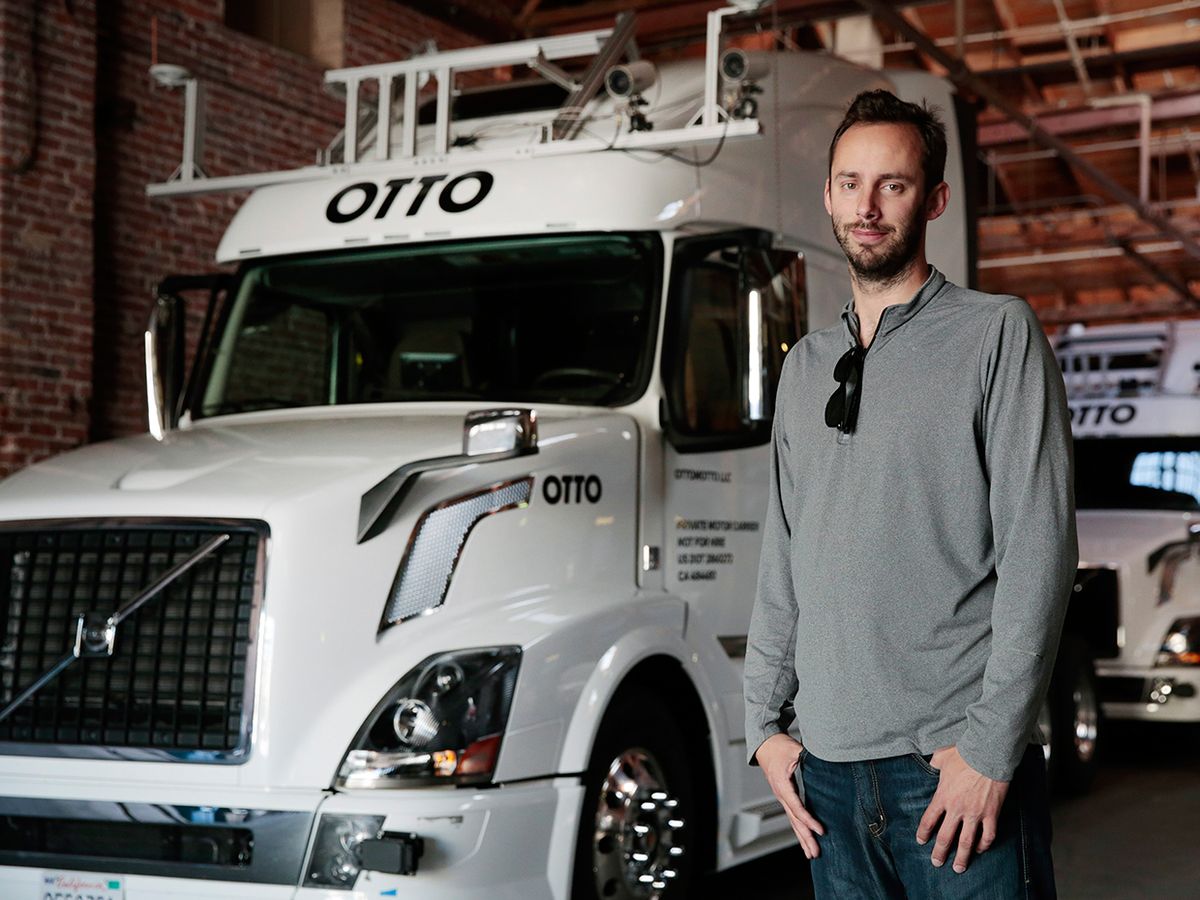When Uber bought self-driving startup Otto back in August 2016, the buzz was not around lidars, patents, or trade secrets but the sheer size of the deal. It was widely reported that the acquisition was worth $680 million to Otto’s founders, sweetened by 20 percent of any future self-driving trucking profits. That potential billion dollar payout would go to a company barely six months old, and with only a couple of prototype trucks on the road.
The companies did not announce the terms of the deal, but neither did they deny widespread reports that the deal was for 1 percent of Uber’s stock, worth around $680 million at the time.
However, documents filed as part of the ongoing lawsuit between Waymo and Uber now suggest that the ultimate payout to Otto could be as low as $220 million–less than one-third the original figure.
Otto’s value is important because Waymo has argued in court filings that Uber paying the “remarkable sum” of $680 million for “a company with few assets and no marketable product” is evidence it was really buying misappropriated trade secrets. Waymo sued Uber in February, alleging that engineer Anthony Levandowski took 14,000 confidential technical files from Google’s self-driving car program when he left to start Otto.
Replying in August, Uber wrote: “Waymo’s claims are specious because Uber purchased talent, not technology, when it purchased [Otto] for incentive stock (not $680 million in cash).” But it was only on Monday this week that the actual terms of the purchase were revealed, in a partially unredacted deposition of Uber’s vice president of corporate development, Cameron Poetzscher.
Poetzscher said, “In late 2015, [the Otto deal] was a customer/vendor relationship. And we shifted strategy to say we’d rather have these people as employees…. Ultimately, we hired them. We paid $100,000 in cash, and we gave a commitment to issue...approximately 12 million shares of Uber, contingent on meeting milestones.”
With Uber having issued about 1.5 billion shares, the Otto purchase represented 0.8 percent of the company’s stock. That works out to about $566 million at Uber’s 2016 valuation. The cash payment of $100,000 was presumably for each of Otto’s 90-plus employees, accounting for another $10 million at most. The total of $567 million is about $100 million less than the $680 million reported at the time. (IEEE Spectrum approached Uber for confirmation of these numbers but did not receive an immediate reply.)
However, a lot has changed since last August. In May, Anthony Levandowski was fired from his position overseeing Uber’s self-driving technologies for not cooperating with the company’s investigation into Waymo’s allegations. At a court hearing, Uber revealed that Levandowski had been granted 5.31 million Uber shares during the Otto acquisition—but also that none of them had vested. When Levandowski left the company, he presumably took with him only the $100,000 signing bonus that all Otto employees received.
Levandowski’s 5.31 million shares accounted for nearly 45 percent of the Otto purchase, and the value of the remainder seem to have plummeted. Although Uber is privately held, its shares can be roughly valued by the amount that institutional investors pay for a stake in the company. The most recent proposed investment, by Japanese technology firm SoftBank, would value Uber’s shares at $33 each—a drop of about a third since its last funding round. That means the remaining 6.69 million shares could be worth just $221 million.
The final total is likely to be smaller still, as key members of Otto may have sacrificed their shares on leaving Uber. Otto cofounder Claire Delaunay is now a vice president of engineering at Nvidia, while other engineers have departed for rival autonomous startups Zoox, Starsky, Argo, and Scoot.
But what about the promise of Otto employees getting 20 percent of the profits from Uber’s future self-driving trucks? That agreement remains unclear, but court filings suggest that it might also have been overstated.
While Uber was negotiating the acquisition in February 2016, Otto split itself into two companies. There was one called Ottomotto that Uber purchased, and one called Otto Trucking that it did not. Otto Trucking, which was originally named as a codefendant in Waymo’s lawsuit, has provided trucking hardware or services to Uber, and it is this company that appears to have the profit sharing arrangement with Uber.
A heavily redacted draft contract for the acquisition references the trucking company’s profit sharing deal, and Nina Qi, a corporate development manager at Uber, talked about it during a deposition in June. “The Otto Trucking profit sharing pool is an aggregate number,” she said. “And Anthony [Levandowski]’s departure lowered the maximum amount that the team could earn in a collective.”
So firing Levandowski has saved Uber from yet another payout, even though any profits from its nascent self-driving trucking business could still be years away.
While Uber’s purchase of the startup seems to have earned Otto far less than was previously reported, it is unlikely that new CEO Dara Khosrowshahi considers it a bargain. The Waymo lawsuit stalled Uber’s development of self-driving technologies, drove away engineers, and continues to reveal a history of shady business practices. Even the cheapest buys can come at a high price.
Mark Harris is an investigative science and technology reporter based in Seattle, with a particular interest in robotics, transportation, green technologies, and medical devices. He’s on Twitter at @meharris and email at mark(at)meharris(dot)com. Email or DM for Signal number for sensitive/encrypted messaging.



